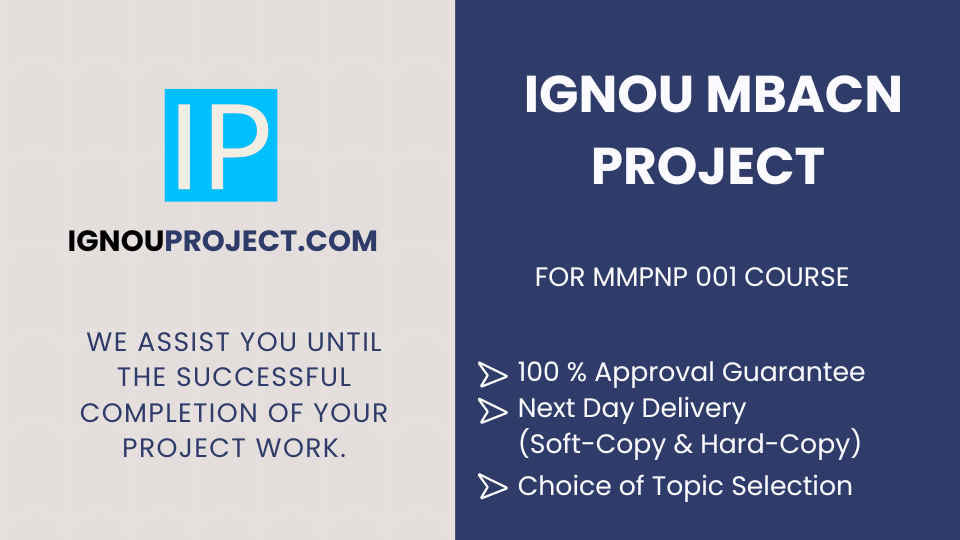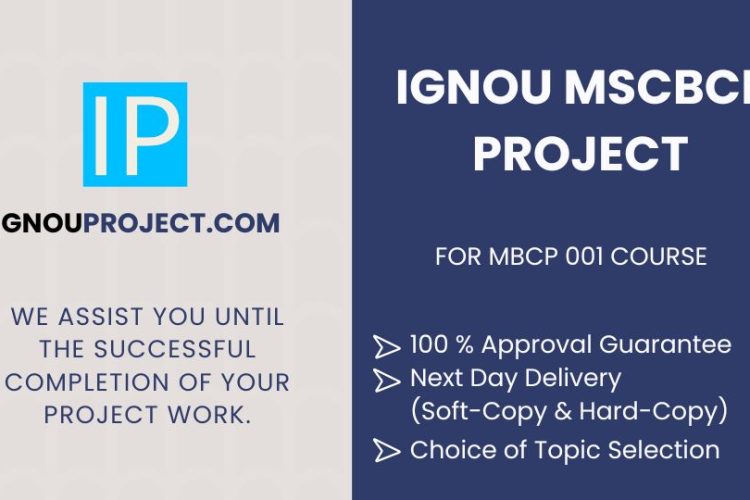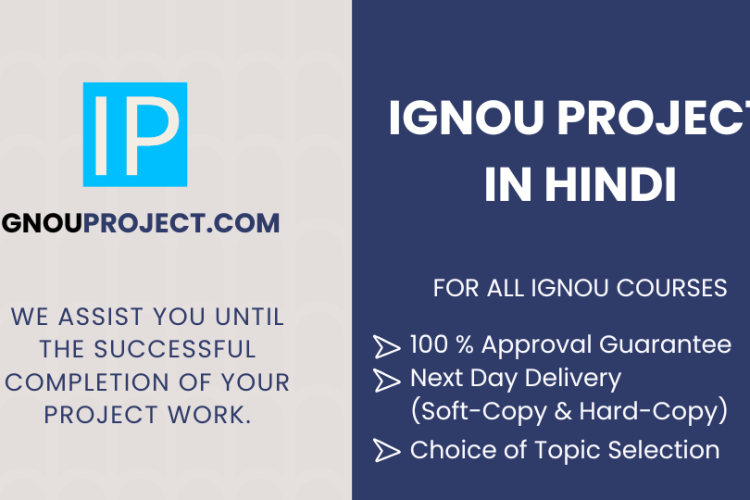
The IGNOU MBACN Project (MMPNP 001) is a crucial part of the MBA in Construction Management program offered by Indira Gandhi National Open University (IGNOU). It’s designed to equip you with practical knowledge and understanding of construction management concepts. An IGNOU MBACN Project (MMPNP 001) is intended to enhance the career prospectus of learners/students; and inculcate more skills and creativity.
Download PDF Link for IGNOU MBACN Project for MMPNP 001
Whatsapp us to get the Personalized (Customized) IGNOU MBACN Project Report and Synopsis
WhatsApp us
IGNOU MBACN Project Topics (MMPNP 001)
- Investigate the utilization of project management software in construction projects to better scheduling, resource allocation, and project tracking.
- “Sustainable Building Materials in Construction Projects”: Investigate the utilization of sustainable building materials in construction projects, with a specific emphasis on efforts such as eco-friendly materials, green building certifications, and lifecycle evaluations.
- Analyze the economic ramifications of building projects on local economies, encompassing employment generation, entrepreneurial prospects, and economic expansion in both urban and rural regions.
- “Challenges and Solutions for Construction Waste Management”: Examine the difficulties encountered in managing construction waste in construction projects and examine cutting-edge solutions such as recycling and waste-to-energy technology.
- “The Role of Public-Private Partnerships in Construction Project Development”: This study aims to analyze the involvement of public-private partnerships in the development of construction projects. It will include an examination of successful collaborations through case studies and the identification of valuable lessons learnt from these partnerships.
- “Safety Management in Construction Projects”: Investigate the methods by which safety management is enabled in construction projects and analyze its effects on worker safety, project schedules, and cost management.
- “Water Resource Management in Construction Projects” examines the methods employed by construction projects to effectively handle water resources, encompassing the utilization of advanced technologies in water treatment, conservation, and distribution.
- Analyze building project initiatives that specifically aim to enhance the quality of life for citizens, including smart infrastructure, intelligent transportation systems, and sustainable urban design.
- “Urban Data Analytics for Construction Project Management”: Explore the utilization of urban data analytics in the management and planning of construction projects, with a specific emphasis on the gathering, analysis, and application of data in the decision-making process.
- “Cybersecurity Challenges in Construction Projects”: Analyze the cybersecurity obstacles encountered in construction projects, encompassing concerns regarding data privacy, safeguarding project management software, and devising solutions to preserve vital infrastructure.
- “Examining the Integration of Sustainable Practices in Construction Project Development”: Investigate the incorporation of environmentally conscious methods into the development of construction projects, with a specific emphasis on conserving the environment, constructing green buildings, and implementing sustainable land use strategies.
- The article titled “The Role of Artificial Intelligence in Construction Project Planning” examines the utilization of artificial intelligence in the planning of construction projects. This includes the use of predictive analytics, AI-powered project scheduling, and automated project monitoring.
- Analyze the many methods employed in construction project development to offer cost-effective housing options, taking into account elements such as technological advancements, policy considerations, and design strategies.
- “Investigate innovative waste management systems in construction projects, such as waste-to-energy technologies, recycling initiatives, and smart collection methods, in the context of smart waste management systems.”
- “Adaptation and Resilience to Climate Change in Construction Project Design” investigates the strategies employed by construction projects to adjust to and fortify themselves against the effects of climate change. This includes examining efforts to decrease carbon emissions and improve urban sustainability.
What are the key tasks involved in the IGNOU MBACN Project (MMPNP 001)?
- Research a specific area of construction management.
- Analyze relevant case studies.
- Compile your findings into a comprehensive project report.
Do you get any guidance during the IGNOU MBACN Project (MMPNP 001)?
Yes, you will receive guidance during the IGNOU MBACN Project. However, it’s important to understand the nature of this guidance.- Experienced Professionals: IGNOU will not assign a dedicated project supervisor to you. Instead, they provide access to experienced professionals in the field of construction management.
- General Guidance: These professionals are likely involved in providing resources, answering general questions about project requirements, and offering insights into different aspects of construction projects, sustainable practices, and innovative solutions.
- Resources and Information: They might point you towards relevant resources, studies, or case studies related to construction management.
- Clarifications and Support: You can reach out to them with questions about project requirements, formatting, or general understanding of construction management concepts.
How do you choose a good IGNOU MBACN Project Topic (MMPNP 001)?
Choosing a good project topic for your IGNOU MBACN Project is crucial for a successful and fulfilling experience. Here are some key factors to consider:Your Interest:
- Passion is key: Pick a topic that genuinely interests you within the realm of construction management. This will motivate you to delve deeper into the research and create a more engaging project.
Availability of Resources:
- Data and Information: Ensure you have access to enough information and data to thoroughly research your chosen topic. Reliable sources like academic journals, industry reports, and government publications are crucial.
- Consider limitations: If a topic requires highly specialized data or access to restricted sites, it might be challenging to conduct thorough research.
Practical Relevance:
- Real-world application: Choose a topic that has practical applications in the construction industry. This demonstrates your understanding of current challenges and potential solutions in the field.
Here’s a process to help you pick a good topic:
- Brainstorm: List down various areas of construction management that intrigue you. This could be project scheduling, cost management, sustainable materials, or use of technology.
- Refine your list: Considering the factors mentioned above, shortlist topics that spark your interest and seem feasible in terms of research resources.
- Get specific: Don’t pick overly broad topics. Narrow down your focus to a specific aspect within your chosen area. For example, instead of “Sustainable Building Materials,” you could focus on “Life Cycle Cost Analysis of Green Roofs.”
- Check feasibility: Once you have a potential topic, conduct a preliminary search to confirm sufficient resources are available and the topic aligns with IGNOU’s project guidelines (consult IGNOU resources for specific guidelines).
What should be included in the MBACN project proposal?
The project proposal should include the following sections:- Title of the project
- Objectives of the study
- Research methodology
- Literature review
- Data collection and analysis plan
- Expected outcomes
Is it mandatory to include a literature review in your IGNOU MBACN Project Report (MMPNP 001)?
Yes, including a literature review in your project report is mandatory. Here’s why it is essential:Importance of a Literature Review
Provides Context:
It places your research within the context of existing knowledge and theories, showing how your work relates to and builds upon previous studies.Identifies Gaps:
By reviewing what has already been studied, you can identify gaps in the existing research that your project aims to fill. This helps in justifying the need for your study.Demonstrates Understanding:
A thorough literature review demonstrates your understanding of the subject area, showing that you are well-informed about current trends, methodologies, and findings.Guides Methodology:
Reviewing existing literature can provide insights into effective research methods and techniques that you can adopt or adapt for your own study.Supports Analysis:
It provides a foundation for comparing and contrasting your findings with those of other researchers, helping to validate your results.Establishes Credibility:
A well-written literature review establishes the credibility of your research by showing that it is grounded in existing knowledge and follows scholarly standards.How to Conduct a Literature Review
Identify Relevant Sources:
Use academic databases, journals, books, and other credible sources to find relevant literature. Ensure that the sources are up-to-date and relevant to your research topic.Evaluate Sources:
Critically evaluate the credibility, relevance, and quality of each source. Focus on peer-reviewed articles and authoritative publications.Take Notes:
Take detailed notes, highlighting key points, methodologies, findings, and any gaps or inconsistencies.Organize Information:
Organize the information thematically or methodologically to provide a clear structure for your review.Write the Review:
Write the review, ensuring it is comprehensive, well-structured, and coherent. Use proper citations and references to acknowledge the sources.What is the expected length of the IGNOU MBACN Project Report (MMPNP 001)?
The expected length of the IGNOU MBACN Project report is typically between 50 to 60 double-spaced pages, excluding appendices and exhibits. It’s important to note that there might be some slight variations allowed on either side of this range. Here’s what to keep in mind:- Double-check IGNOU guidelines: Always refer to the official IGNOU project guidelines for the most up-to-date information on report length and formatting requirements. These guidelines can be found on the IGNOU website or through your regional center.
- Word count might be mentioned: Some resources might mention a word count instead of page length. This could be around 15,000 to 18,000 words, excluding appendices and exhibits.
- Focus on quality content: Strive for concise and impactful writing. Avoid unnecessary information or repetition.
- Utilize appendices effectively: Include detailed data, complex calculations, or lengthy questionnaires as appendices to avoid cluttering the main report.
- Maintain a clear structure: A well-organized report with proper headings and subheadings allows for efficient use of space.
What are some tips for getting a good grade on the IGNOU MBACN Project (MMPNP 001)?
Here are some tips to help you achieve a good grade on your IGNOU MBACN Project:Planning and Organization:
- Start Early: Don’t wait until the last minute. Give yourself ample time for research, writing, revisions, and feedback incorporation.
- Develop a Schedule: Create a realistic timeline that breaks down the project into manageable tasks. Allocate time for each stage, including research, writing, editing, and presentation preparation.
- Organize your Research: Maintain a system for storing and referencing your research materials. This could involve digital folders or physical note-taking methods.
Research and Content:
- Choose a Strong Topic: Select a topic that interests you and has practical relevance in the construction management field. Ensure sufficient resources are available for thorough research.
- Conduct High-Quality Research: Utilize credible sources like academic journals, industry reports, government publications, and reliable websites.
- Focus on Critical Analysis: Don’t simply summarize existing information. Analyze your findings, identify key themes and trends, and draw well-supported conclusions.
- Proper Citation: Avoid plagiarism by meticulously citing all sources according to the required referencing style (e.g., APA, MLA). Use a reference management tool if needed.
Writing and Presentation:
- Clear and Concise Writing: Strive for a well-written and easy-to-understand report. Use clear language, avoid jargon where possible, and maintain a logical flow throughout the document.
- Follow Formatting Guidelines: Adhere to IGNOU’s formatting specifications for the project report, including font size, spacing, margins, and referencing style. Consistency is key.
- Proofread and Edit: Thoroughly proofread your report for any grammatical errors, typos, or inconsistencies. Have someone else review it for clarity and flow as well.
- Prepare a Compelling Presentation: If required, develop a clear and concise presentation that effectively communicates your research findings. Use visuals like charts and graphs to enhance understanding. Practice your delivery beforehand.
Related Post:
Ready to get your IGNOU MBACN Project Report and Synopsis Sample PDF for MMPNP 001?
- Call us or WhatsApp us at: 9958947060, 9354637830
- Visit: IGNOUPROJECT.COM
- Check Out: Project

